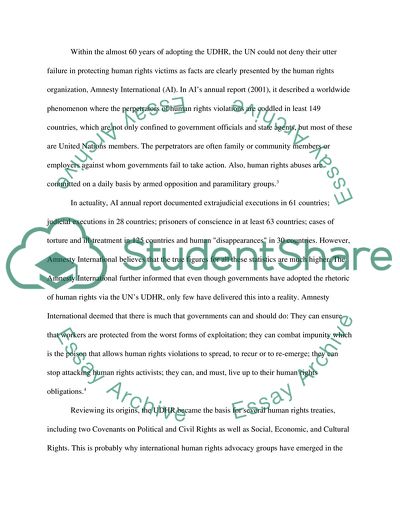Cite this document
(“UNs Declaration of Human Rights Essay Example | Topics and Well Written Essays - 2250 words”, n.d.)
Retrieved from https://studentshare.org/law/1535437-uns-declaration-of-human-rights
Retrieved from https://studentshare.org/law/1535437-uns-declaration-of-human-rights
(UNs Declaration of Human Rights Essay Example | Topics and Well Written Essays - 2250 Words)
https://studentshare.org/law/1535437-uns-declaration-of-human-rights.
https://studentshare.org/law/1535437-uns-declaration-of-human-rights.
“UNs Declaration of Human Rights Essay Example | Topics and Well Written Essays - 2250 Words”, n.d. https://studentshare.org/law/1535437-uns-declaration-of-human-rights.


